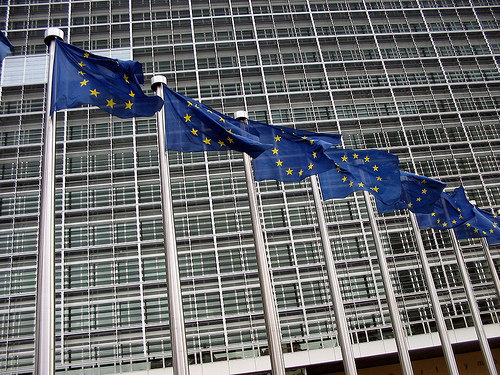SOCHI, September 14 - RAPSI. Moscow does not agree with the European Parliament's resolution on Russia, as the document is not based on substantiated sources, according to Dmitry Peskov, the press secretary for the Russian president.
The European Parliament adopted on Thursday a resolution criticizing Russia's judicial system.
Peskov said it is unclear on which information the MEPs based the resolution, but "it can surely be said that these sources are unsubstantiated and the analysis does not correspond with reality."
In asserting their continued concern for trends in Russia, the resolution's authors listed such high-profile judicial cases as those of former YUKOS head Mikhail Khodorkovsky and Pussy Riot, as well as political issues, such as an upcoming vote to oust opposition lawmaker Gennady Gudkov from the Duma.
The text of the resolution specifically mentions cases that have raised concerns in the West, such as the "politically motivated" Khodorkovsky trial.
The YUKOS case has been one of the most high profile in Russia in recent years. In the early 2000s, the authorities accused YUKOS executives Khodorkovsky and Platon Lebedev of fraudulent financial dealings. YUKOS, then the country's largest oil company, went bankrupt and its assets were taken over by Rosneft. Many in the West believe the case was politically driven, although Moscow denies the charges.
In 2005, Khodorkovsky and Lebedev were sentenced to eight years in prison for fraud and tax evasion.
In late 2010, a Moscow district court sentenced them to 14 years in prison for oil theft and money laundering. They are expected to be released in 2017 with time served for their previous convictions in their first trial.
Special attention was paid to the Pussy Riot case as well. According to the MEPs, the case demonstrates the increasingly frequent, politically motivated intimidation and prosecution of opposition figures in Russia.
On February 21, 2012, five young women wearing brightly colored balaclavas stood at the altar of Moscow's Christ the Savior Cathedral and performed a protest song entitled, "Holy Sh*t." Shortly thereafter, an edited video of the performance that was uploaded to the Internet incited a public outcry.
Pussy Riot members Nadezhda Tolokonnikova, Maria Alyokhina and Yekaterina Samutsevich were convicted of disorderly conduct and sentenced on August 17 to two years imprisonment.
Recent Russian legislative initiatives were harshly criticized as well.
The European Parliament believes that negative trends are emerging in the State Duma, such as the case of Gennady Gudkov, who was stripped of his parliamentary seat on Friday. The MEPs view the move as an intimidation tactic against an opposition party that supported the protest movement.
Previously, Alexander Shchukin, the head of the Investigative Committee's Investigative Department, said Gudkov was involved in managing a construction company in Bulgaria. According to legislation, deputies are not permitted to be involved in business. It was revealed in June that investigators were carrying out an inspection upon Bulgarian citizen Ivaylo Zartov's application regarding Gudkov's purported investments in a Bulgarian firm and his alleged tax evasion in Russia. Gudkov said Zartov had previous convictions in the Czech Republic and Bulgaria and was trying to settle accounts with him.
Additionally, the Interior Ministry looked into the security businesses owned by the Gudkov family and said a number of violations have been committed there as well.
Gudkov believes these investigations are connected to his political opposition status.



